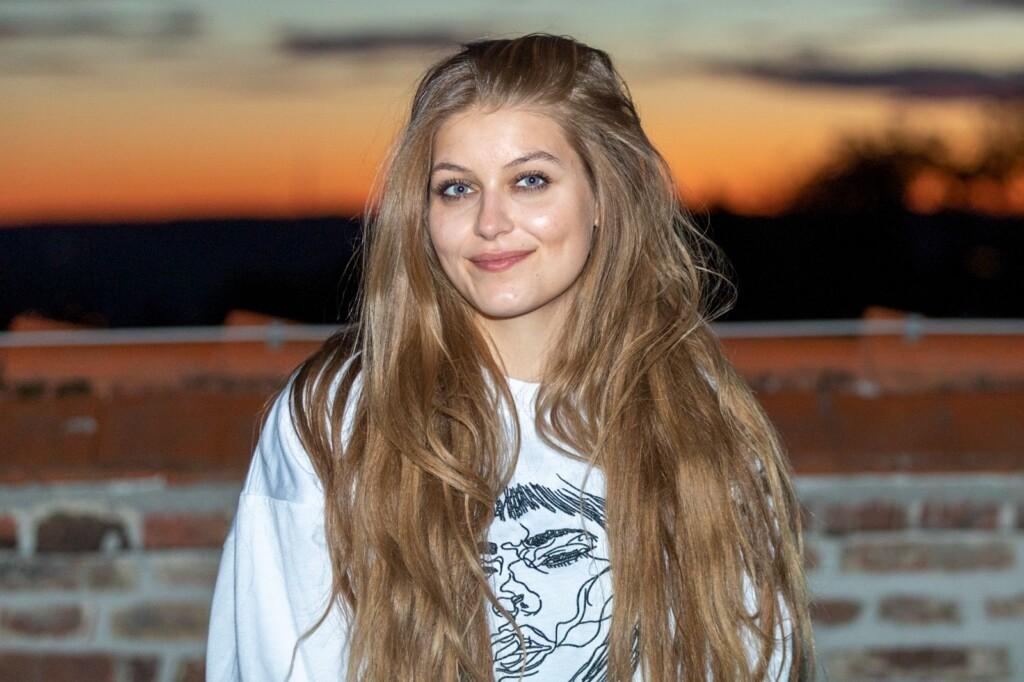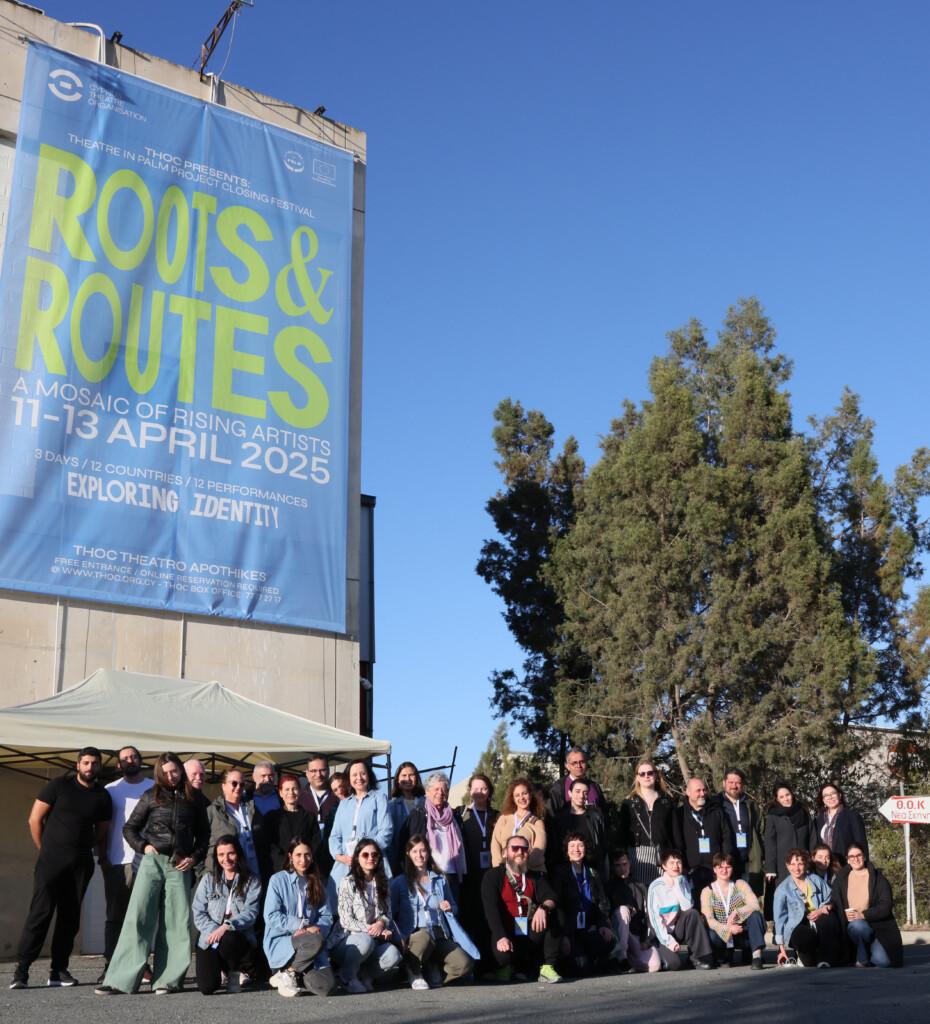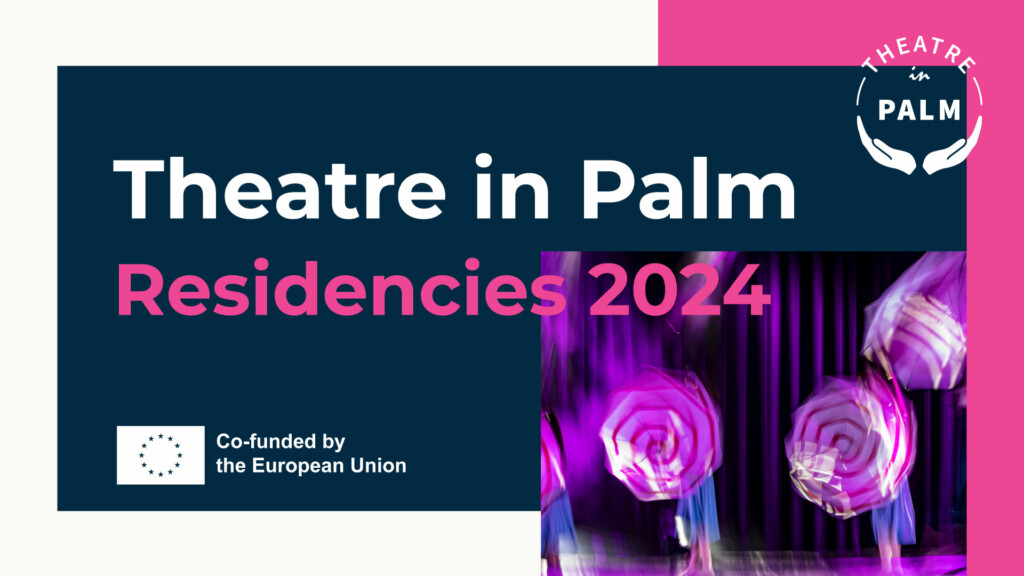Artikus: Theatre That Dares to Look Closer
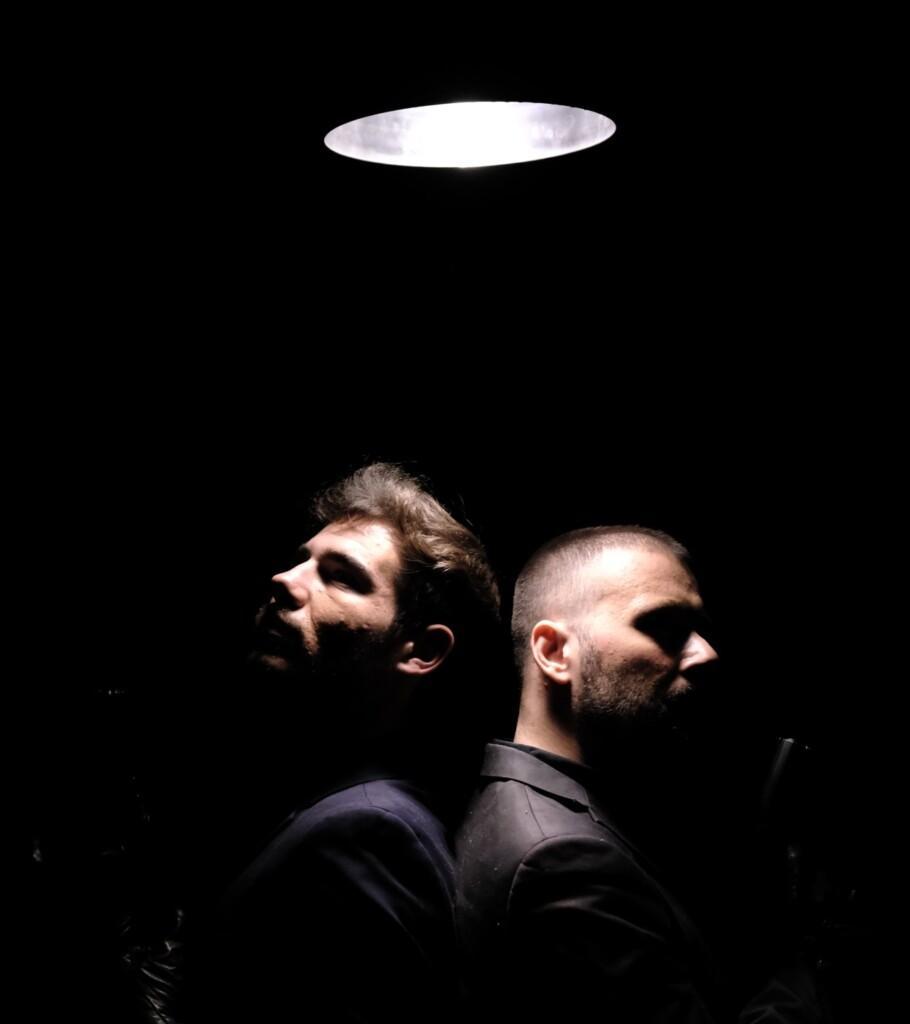
Founded in 2021 by a powerhouse team of professional actors, Artikus has quickly carved out a space in Bulgaria’s contemporary performing and screen arts scene—not just with bold projects, but with a mission that bridges performance, education, and community. Whether on stage or in unconventional spaces, Artikus believes in theatre that transforms, provokes, and connects.
In this interview, we dive into their journey—from their award-winning youth theatre exchanges to their chilling new play “Targets”, set to premiere at the upcoming theatre festival in Nicosia. With deep reflections on masculinity, morality, and the invisible roles we’re trapped in, the duo behind Targets shares what it really means to perform as a duet, why pauses matter more than words, and what keeps them in love with theatre in all its messy, magical truth.
This is a story about the art of collaboration, the courage to ask difficult questions, and the belief that theatre is not just a mirror to society—but a way to shape it.
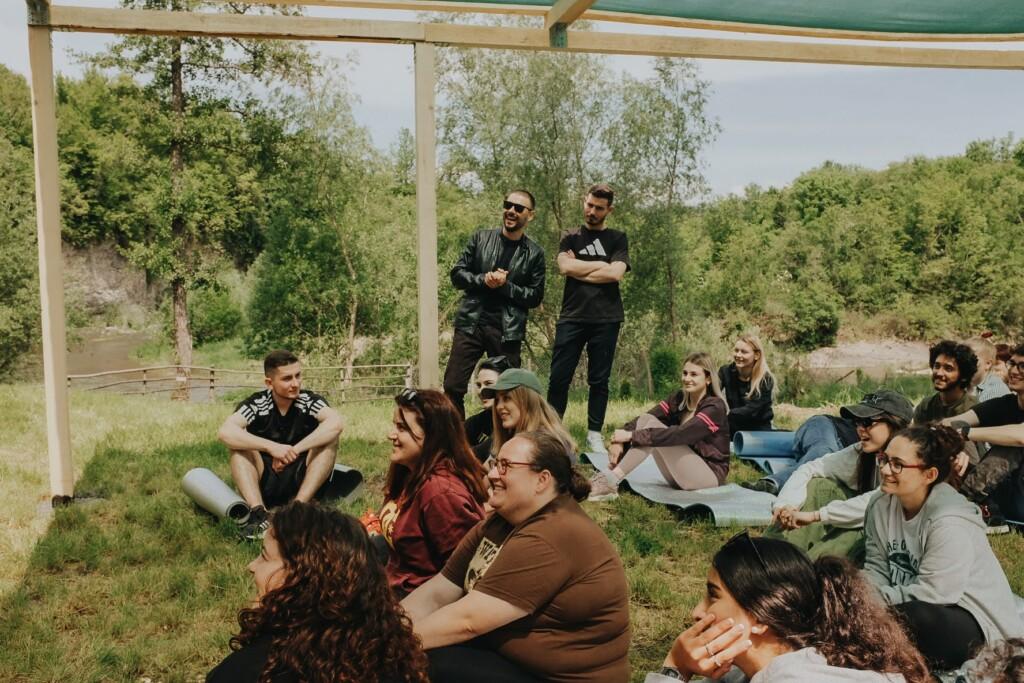
Photo by Artikus
For starters, please introduce yourselves, your association, and what has been
keeping you in theatre and screen arts at the first place.
Artikus was founded in 2021 by a team of well-known professional actors, all actively
working in theatre, film, and television. What brought us together—and what keeps us
deeply rooted in the world of performing and screen arts—is our shared belief in the
transformative power of art. Whether it’s on stage or on screen, we see storytelling as a way
to challenge, inspire, and bring people together across backgrounds and generations.
At our core, we aim to develop and popularize the performing and screen arts through
high-quality, professionally driven projects. But our mission goes beyond performance: we’re
committed to using innovative artistic methods in non-formal education, business
development, and personal growth. We actively work with both professionals and amateurs,
supporting debuting artists, youth, and cultural enthusiasts alike.
Our work includes:
● Creating and producing diverse stage and screen projects;
● Supporting training programs for artists;
● Running advertising campaigns and cultural events;
● Building an art community that bridges experience and fresh talent;
● And offering a platform for experimentation, creativity, and development.
With over 60 experienced professionals—actors, directors, designers, composers,
choreographers, and trainers—and a growing network of over 100 artists, we continue to
expand our reach and impact. Our past year alone included over 20 realized projects on our
stage.
We’re proud to partner with state, municipal, and private theaters and organizations both in
Bulgaria and across Europe, always seeking to share good practices and raise the bar for
artistic collaboration and education.
What keeps us in theatre and screen arts is the same thing that brought us here in the first
place: the belief that art is not only a mirror of society but also a tool to shape its future—and
we’re here to be part of that process.
Can you tell us about your latest work or any projects, past or ongoing, that you
are particularly excited about?
One of our latest and most exciting initiatives was a youth exchange program called “8 Paths
of Connection”, which took place in Bansko, Bulgaria, in collaboration with the Alter Network
and co-funded by the Erasmus+ Programme of the European Union.
The project brought together young people from across Europe and explored eight powerful
and transformative theatre techniques, from physical theatre and improvisation to directing,
role-playing, and therapeutic theatre. What made this project unique was our focus on social
exclusion, using theatre as a tool not only for self-expression but for social change.
Participants worked hands-on with professional actors and trainers—some seasoned, others
just starting out—and the process culminated in a collaborative final performance where they
tackled real-life social issues through creative storytelling.
We transformed an unconventional space into a vibrant theatre environment with costumes,
props, lighting, and full technical support. But more than that, we created a community—a
safe, inspiring zone where creativity met personal growth. The participants didn’t just learn
theatre—they learned how to listen, express, lead, and connect.
This project reminded us why we do what we do: because theatre can heal, provoke, unite,
and elevate. We walked away with not just a beautiful performance, but with new skills, new
friends, and a renewed sense of purpose in using art as a language for empathy and
transformation.
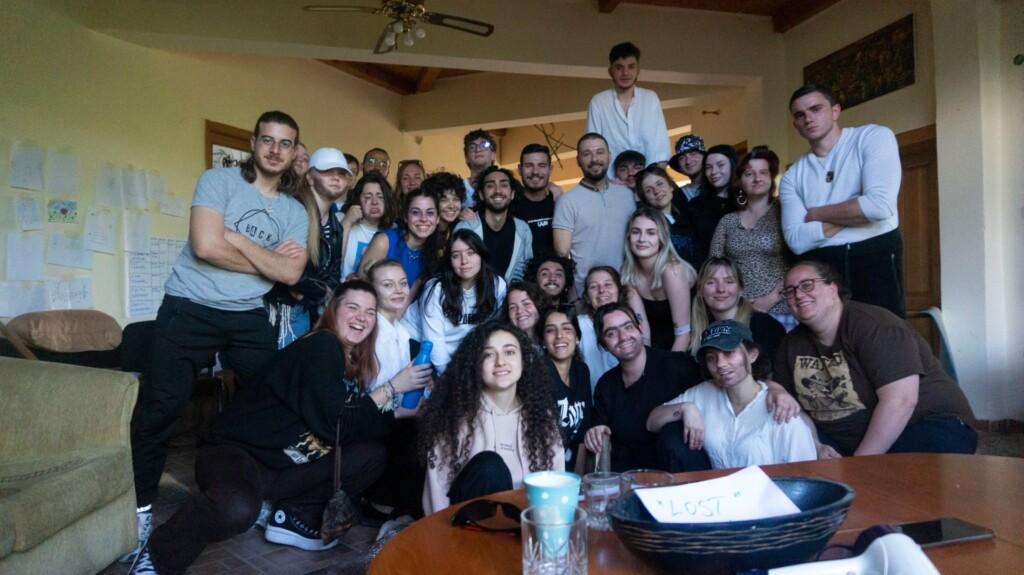
Photo by Artikus
The upcoming theatre festival in Nicosia is going to bring together a lot of
various theatre artists from all over Europe. What does it mean for you to be part
of this event?
It is an absolute pleasure and honor for us to be part of the upcoming theatre festival in
Nicosia. Being among such a diverse and talented community of theatre artists from all over
Europe is truly inspiring.
For us at Artikus, this event is much more than just a festival—it’s a celebration of
connection, creativity, and shared values through the performing arts. We are especially
thrilled to represent Bulgaria with our performance and to have the opportunity to present our
art and culture on another land.
It brings us great joy to be able to contribute to this vibrant artistic exchange and to share the
stories, energy, and passion that drive our work. We deeply believe in the power of theatre to
cross borders and create bonds, and this festival gives us the perfect space to do just that.
We can’t wait to meet the other artists, to exchange ideas, and to be part of something so
meaningful and unifying.
Tell us about your play, “Targets”. Who is targeting whom, and how do you target
your audience with this piece?
“Targets” is a psychological two-hander that explores the thin line between loyalty and
destruction, between routine and morality, between being a professional… and being
human. It’s an intense, intimate piece centered around two men, Dick and Angus, who are
caught in the silent machinery of an unnamed organization—a machine that asks for blind
execution and zero reflection.
Who is targeting whom? On the surface, Dick and Angus await a “target”—a person they’re
meant to eliminate. But as the story unfolds, it becomes chillingly clear: they themselves are
the targets. Of each other. Of the system. Of their own past choices. It’s a story where the
enemy is not outside the door, but across the room… or inside the soul.
We target the audience not with fear, but with questions.
We confront them with the absurdity of violence, the loneliness of those who carry it out,
and the fragility of friendship under pressure. The structure of the play—a mix of mundane
dialogue, absurd comedy, and sharp emotional turns—keeps the audience uncomfortably
close. They’re never sure whether to laugh or hold their breath.
This piece is our way of peeling back the curtain on masculinity, duty, love, guilt, and grief,
and exposing what happens when you no longer know if you’re the killer… or the killed.
It’s a raw, powerful piece we are proud to present at the festival, and we believe it will speak
universally—because it’s not just about two men in a room. It’s about anyone who’s ever felt
trapped in a role they didn’t choose, struggling to reclaim their humanity.
What is the most exciting or challenging aspect of this performance?
One of the most exciting yet challenging aspects of this performance lies in the work
with pauses and the collaboration with the playwright. These elements, especially in the
early stages of development, are among the most complex parts of our process as a
team. It requires precision, deep emotional timing, and a strong connection to the
author’s vision—making it one of the most demanding creative tasks we take on.
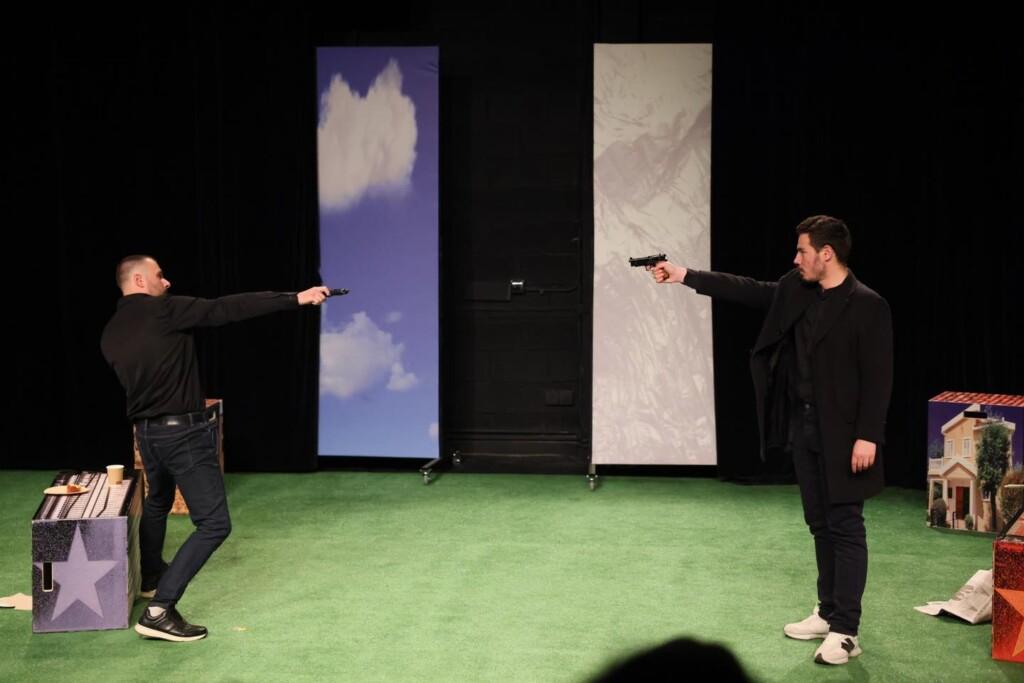
Photo by Antonis G. Antoniou
How do you approach performing as a duet? What is the dynamic like between
you, both on and behind the stage?
We have been working together for over five years now, and most of our creative
projects have been as a duo. This long-standing partnership is both a blessing and a
challenge.
On one hand, we’ve developed a strong sense of trust and rhythm—we know how to
read each other, how to support one another on stage, and how to build tension and
emotion together. But on the other hand, it forces us to constantly reinvent
ourselves—to be new for each other every time we perform. That’s the real challenge:
not falling into patterns or comfort zones, but keeping everything fresh, alive, and
unpredictable, both for the audience and for ourselves.
Off stage, we push each other creatively, challenge one another, and never let things
become routine. It’s this tension between familiarity and reinvention that gives our duet
performances such depth and energy.
What inspires you most as performers? Are there particular artists who influence
your work or topics that you love to recreate on stage?
As performers, what inspires us most is human complexity—the raw, unfiltered
emotions, the contradictions, the quiet moments between the lines. We are drawn to
stories that ask difficult questions rather than offer easy answers. On stage, we love
exploring themes like identity, morality, memory, guilt, and connection—the invisible
threads that tie people together or tear them apart.
Artistically, we’re influenced by a wide range of creators. From Harold Pinter, whose
use of silence and tension shaped our understanding of pauses, to Lars von Trier and
Charlie Kaufman, who aren’t afraid to dive into uncomfortable truths. We also draw a lot
of inspiration from Eastern European directors who work with minimalism, psychological
realism, and a certain poetic brutality.
But more than any individual artist, we’re inspired by the people we meet—their stories,
their struggles, the things they don’t say out loud. That’s what we try to recreate on
stage: not perfection, but truth. Even if it’s messy. Especially if it’s messy.
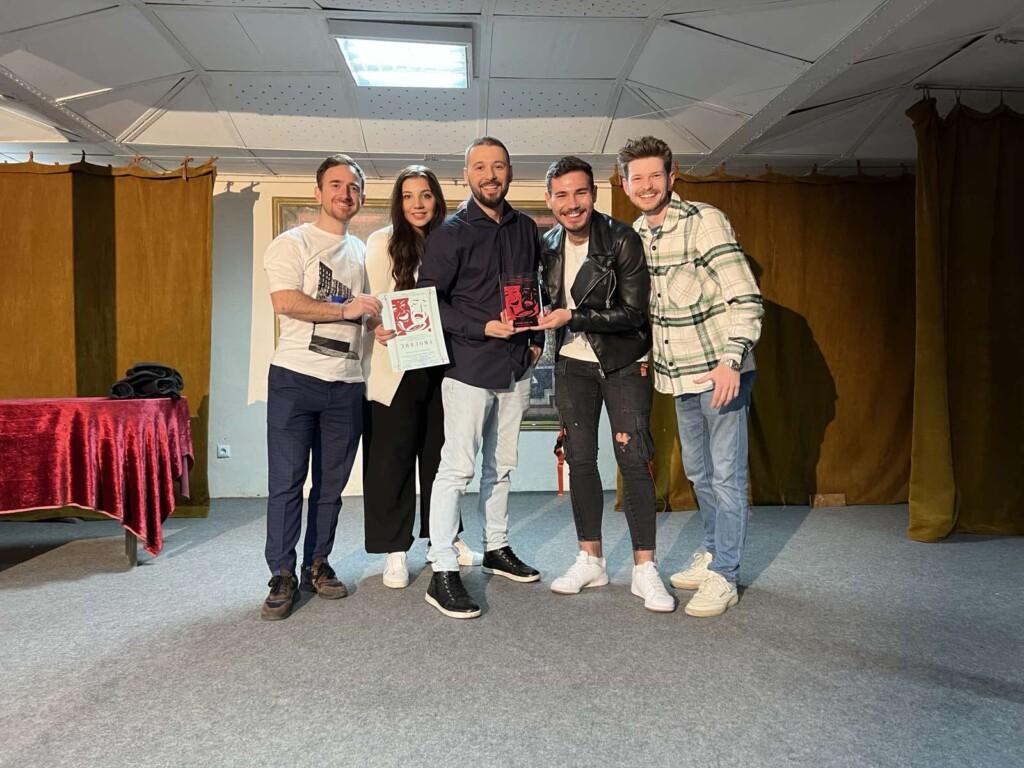
Photo by Artikus
What advice would you give to emerging artists looking to make their mark in
theatre and screen arts?
The most important advice we can give to emerging artists is this:
Love the art for what it is—not just for what it can do for you.
Don’t chase the applause, the spotlight, or the recognition. Chase the truth, the craft,
the growth. Let the art transform you before you try to use it to transform others.
Theatre and screen arts are not about being seen—they’re about seeing, deeply and
honestly. If you stay curious, humble, and connected to the stories you tell, your mark
will come naturally.
And always remember: Love art because it needs you. Not because you need to be
loved by it.
How would you describe your upcoming performance in just three words?
Interesting, Shocking, Friendly
Where can people follow your work or learn more about your artistic journey?
In our social platforms:
https://www.artikus.org/
https://www.facebook.com/Artikus.Association
